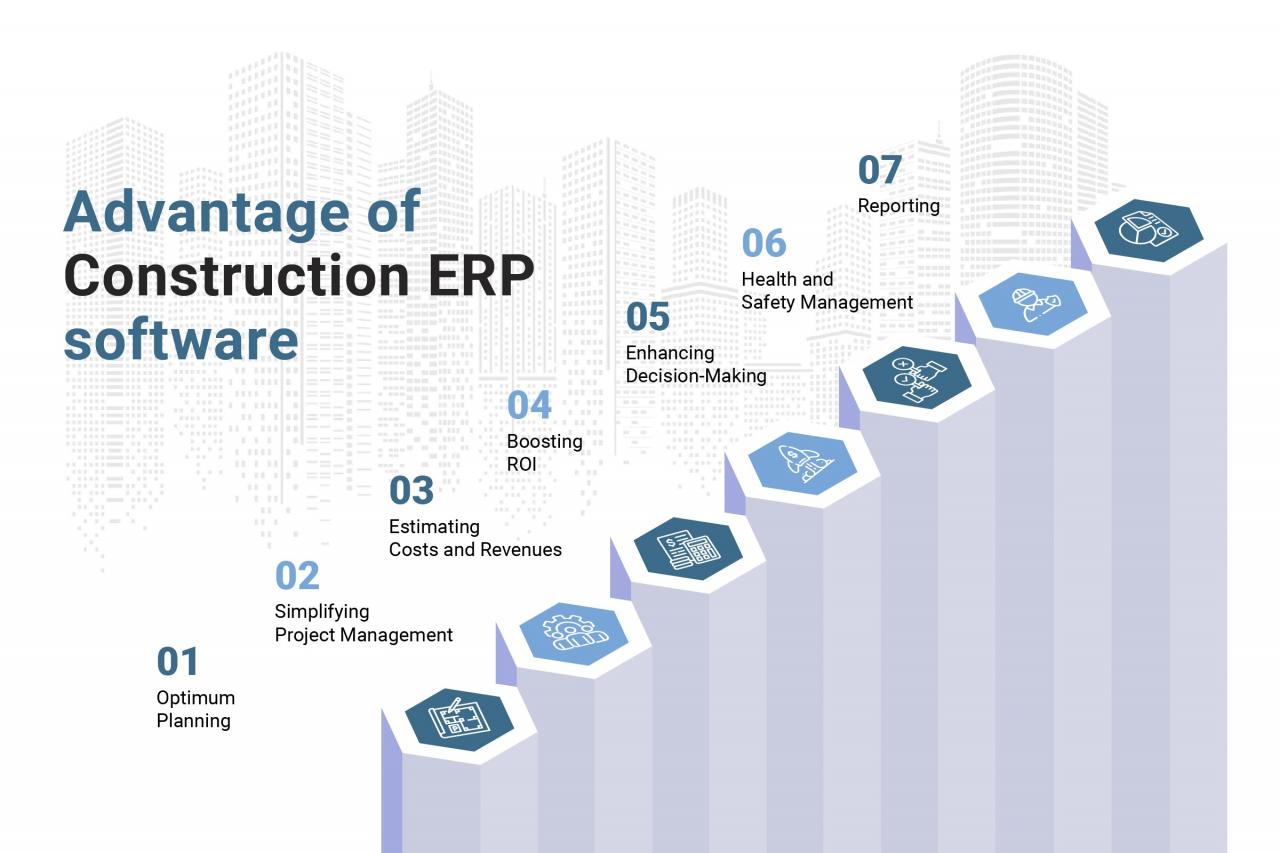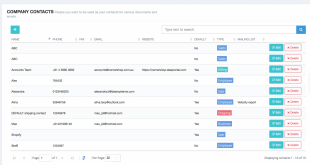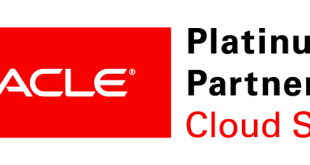In the dynamic realm of construction, efficiency and collaboration are paramount. Enter top construction ERP software, a game-changer that streamlines operations, enhances communication, and empowers project teams to achieve unparalleled success. Join us as we delve into the intricacies of this transformative technology, exploring its features, benefits, and the future trends shaping the industry.
Construction ERP software is an integrated suite of applications that centralizes all aspects of project management, from planning and scheduling to cost control and document management. By leveraging a single platform, construction companies gain real-time visibility, improved collaboration, and the ability to make informed decisions that drive project success.
Market Overview
The construction ERP software market is experiencing significant growth, driven by the increasing adoption of digital technologies in the construction industry. The market is expected to reach $4.6 billion by 2026, growing at a CAGR of 8.2% from 2021 to 2026.
Major trends shaping the market include the rising demand for integrated construction management solutions, the increasing adoption of cloud-based ERP systems, and the growing focus on sustainability and green construction practices.
Key Market Players
Key players in the construction ERP software market include:
- Oracle
- SAP
- Microsoft
- Trimble
- Sage
Key Features of Construction ERP Software

Construction ERP software offers a comprehensive suite of features tailored to meet the unique needs of construction businesses. These solutions provide a centralized platform for managing various aspects of construction projects, from project planning and estimation to resource allocation, scheduling, and financial management.
Implementing construction ERP software brings numerous benefits, including improved project visibility, enhanced collaboration, streamlined workflows, and reduced project costs. By integrating all project-related data into a single system, businesses can gain a holistic view of their operations, make informed decisions, and optimize project outcomes.
Core Functionalities
- Project Planning and Estimation: Manage project timelines, create project plans, and estimate project costs with accuracy.
- Resource Allocation and Scheduling: Allocate resources effectively, schedule tasks, and track resource availability to ensure timely project completion.
- Financial Management: Manage project budgets, track expenses, generate invoices, and control project cash flow.
- Reporting and Analytics: Generate customizable reports and dashboards to monitor project progress, identify bottlenecks, and make data-driven decisions.
li>Document Management: Centralize project documents, drawings, and specifications for easy access and collaboration.
Comparison of Construction ERP Software Solutions, Top construction erp software
Various construction ERP software solutions are available in the market, each offering unique features and capabilities. When selecting a solution, it is crucial to consider factors such as project size, industry specialization, and budget. Some of the leading construction ERP software providers include:
- Oracle Construction and Engineering
- Procore
- Sage 100 Contractor
- Viewpoint
- Jonas Premier Construction
These solutions offer a range of functionalities, from basic project management to advanced features such as mobile access, document collaboration, and project analytics. By carefully evaluating the specific needs of the business and comparing different software options, construction companies can choose the solution that best aligns with their project requirements and goals.
Benefits of Using Construction ERP Software
Construction ERP software offers a wide range of benefits that can help construction companies improve their operations, increase efficiency, and reduce costs. These benefits include improved project management, enhanced collaboration and communication, and reduced costs.
Improved Project Management
Construction ERP software can help construction companies improve project management by providing a central platform for managing all aspects of a project, from planning and scheduling to budgeting and tracking progress. This can help to improve coordination between different teams and departments, reduce errors, and avoid delays.
- Centralized data management for all project-related information
- Real-time visibility into project progress
- Improved communication and coordination between teams
- Automated workflows and notifications
- Enhanced decision-making based on real-time data
Enhanced Collaboration and Communication
Construction ERP software can also help construction companies enhance collaboration and communication by providing a central platform for sharing information and documents. This can help to break down silos between different teams and departments, improve communication, and reduce the risk of errors.
- Centralized document management and sharing
- Real-time messaging and notifications
- Improved communication between field teams and office staff
- Enhanced collaboration on project planning and execution
- Reduced risk of errors and omissions
Reduced Costs and Increased Efficiency
Construction ERP software can also help construction companies reduce costs and increase efficiency by automating many of the tasks that are traditionally done manually. This can free up employees to focus on more value-added activities, such as project planning and execution.
- Automated workflows and processes
- Reduced paperwork and manual data entry
- Improved inventory management
- Optimized resource allocation
- Reduced waste and rework
Implementation Considerations

Implementing construction ERP software can bring significant benefits to businesses, but it’s crucial to consider key factors to ensure a successful deployment.
Challenges may arise during implementation, such as data migration, user adoption, and integration with existing systems. To mitigate these challenges and achieve optimal results, it’s essential to follow best practices.
Key Factors to Consider
- Project Scope and Objectives:Clearly define the goals and scope of the ERP implementation, ensuring alignment with business objectives.
- Data Migration:Plan a comprehensive strategy for migrating existing data into the new ERP system, ensuring accuracy and completeness.
- User Adoption:Engage users throughout the implementation process, providing training and support to ensure smooth adoption and minimize resistance.
- Integration with Existing Systems:Identify and address potential integration challenges with existing systems, such as accounting, CRM, and project management software.
- Vendor Selection:Choose a reputable ERP vendor with a proven track record in the construction industry and strong customer support.
5. Future Trends in Construction ERP Software
The construction industry is constantly evolving, and so too is the software that supports it. Construction ERP software is becoming increasingly sophisticated, and new trends are emerging that will shape the future of the industry.
One of the most important trends is the move towards cloud-based ERP systems. Cloud-based systems are more flexible and scalable than on-premise systems, and they can be accessed from anywhere with an internet connection. This makes them ideal for construction companies that have multiple projects in different locations.
Another trend is the increasing use of artificial intelligence (AI) in construction ERP software. AI can be used to automate tasks, such as scheduling, resource allocation, and project management. This can help construction companies to improve efficiency and productivity.
Finally, there is a growing trend towards the use of mobile ERP software. Mobile ERP software allows construction workers to access project information and collaborate with colleagues from anywhere. This can help to improve communication and coordination on construction projects.
Key Takeaways
- Cloud-based ERP systems are becoming increasingly popular due to their flexibility and scalability.
- AI is being used to automate tasks and improve efficiency in construction ERP software.
- Mobile ERP software is allowing construction workers to access project information and collaborate with colleagues from anywhere.
Wrap-Up: Top Construction Erp Software
As the construction industry continues to evolve, top construction ERP software will remain an indispensable tool for companies seeking to optimize their operations and stay ahead of the competition. With its ability to enhance project management, foster collaboration, and reduce costs, construction ERP software is poised to play an increasingly vital role in the future of the industry.
Originally posted 2024-05-20 15:06:10.
 Bussines News Daily
Bussines News Daily



